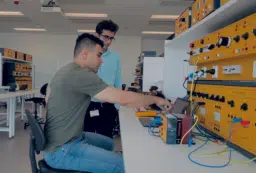As we breathe, lung movements could be killing the very cells we need for gas exchange. Flinders University researcher Dr Yasmin Edwards and her colleagues have discovered that macrophages, best known for their role in scavenging dead cells, may actually prevent living cells from dying by producing a protective gas.
As people breathe, the cells lining the air sacs of the lungs are repeatedly stretched as the lungs inflate and deflate. This stretching triggers the release of pulmonary surfactant, a detergent-like substance that adjusts surface tension and prevents both over-inflation and collapse of the air sacs.
“This surfactant system is crucial for normal lung function and its failure is responsible for thousands of deaths a year in adults and newborn babies,” says Dr Edwards.
Dr Edwards and her co-workers have discovered that stretch not only triggers the release of surfactant from lung cells but also causes them to die.
“This is a major anomaly since it suggests that the very process necessary to sustain life – breathing – kills the cells that are essential for normal lung function,” says Dr Edwards.
To understand how this could happen, Dr Edwards has developed an in-vitro (‘test-tube’) lung model to study the interactions between different lung cells. She has found that macrophages, noted for their roles in scavenging and digesting bacteria, viruses and dead cells, in fact protect surfactant-secreting cells from dying after they have been stretched.
“What’s more,” says Dr Edwards, “ they appear to do this by producing the gas Nitric Oxide. At high concentrations, nitric oxide contributes to smog and atmospheric pollution but, in the body, it plays some very important physiological roles,” she said.
“This discovery furthers our understanding of how the lung functions,” says Dr Edwards,“it suggests that macrophages may play a previously unknown role in preventing the cells in our lungs from dying before their time.”





 Fresh Science is on hold for 2022. We will be back in 2023.
Fresh Science is on hold for 2022. We will be back in 2023.